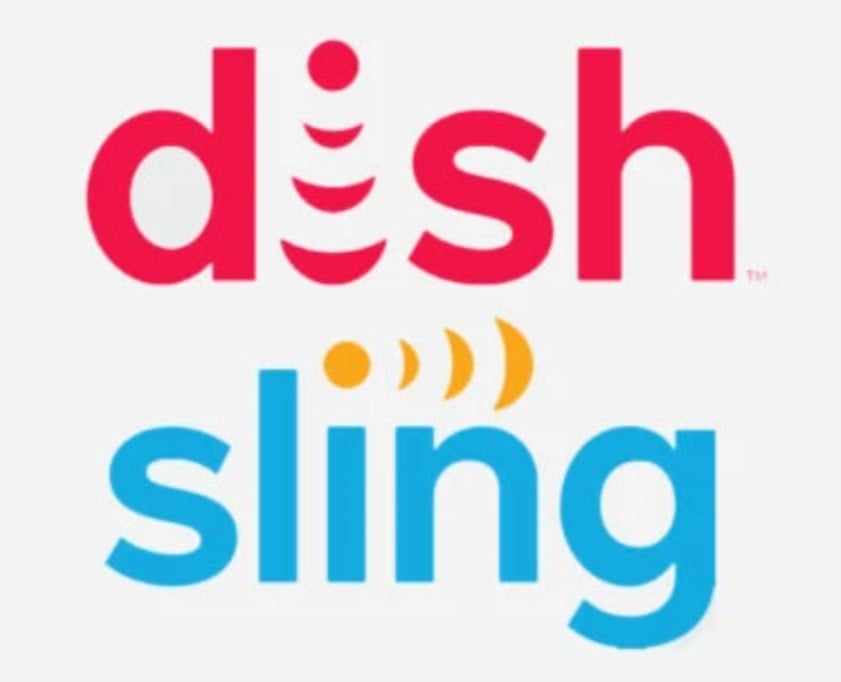
DISH is investing heavily to build out a 5G wireless business. Here, a technician works on a 5G tower in Colorado.
Daniel Brenner/BloombergShares of DISH Network look like a bargain at 12 times earnings, one of the cheaper multiples in telecom. But at least one analyst says the stock is a value trap.
MoffettNathanson’s Craig Moffett reiterated a Sell rating on shares of DISH (ticker: DISH) on Wednesday. He maintained a $15 target, more than 50% below recent prices around $32.55.
DISH is investing heavily to build out a 5G wireless business, aiming to pivot from its core satellite pay-TV service, which has been losing subscribers for years. The company has said it plans to spend $10 billion on the 5G buildout. And it may have participated in the government’s recent “C-band” spectrum auction, though DISH hasn’t released any figures. Results of the auction will be disclosed by the Federal Communications Commission, likely in early February.
DISH has built a considerable spectrum portfolio, amassed over the years by co-founder and chairman Charlie Ergen. Bulls on the stock argue that DISH’s spectrum has gained value, as evidenced by the $95 billion that telecom companies just spent on C-band.
But DISH can’t sell excess spectrum to an incumbent telecom operator for six years under a consent decree signed in 2019 with the U.S. Department of Justice, part of the approval terms for the Sprint/T-Mobile (TMUS) merger. And DISH would have to deploy spectrum in a working network before it can be sold.
DISH stock has been a market laggard for the past three years, but it gained 20% in the past three months versus a 10% gain for the S&P 500 index.
Moffett argues that the telecom industry is now in a spectrum arms race, however, and that it will end badly for DISH equity owners. The $95 billion shelled out for C-band implies that incumbent telecom operators will need far more spectrum than anticipated to build a robust, nationwide 5G network. Japan’s Rakuten Mobile is spending $7.7 billion to build and upgrade a network for a land mass that is 4% of the U.S. with 38% of the population, he points out, and their subscriber growth has been disappointing.
DISH may have spent as much on C-band as it was expected to spend on its entire network, he says, and it hasn’t even started building yet.
“U.S. wireless operators have said they’ll spend six times more than DISH on 5G networks,” Moffett said in an interview. “But people still believe DISH can build a competitive network for $10 billion? There’s no evidence that’s possible.”
DISH could access low-cost financing with interest rates near zero. But the company sold $2 billion of 0% unsecured convertible securities in December, maturing in 2025. The stock fell at the time, partly because the bonds convert at around $41, 30% above the stock’s price around the issuance. The conversion would dilute existing equity owners. And it implies that DISH saw scant value in its equity, Moffett says. “They could have issued debt at 2% if they were willing to secure it with spectrum, and they chose not to do that,” he says.
DISH declined to comment.
The company has been expanding beyond satellite TV, adding the Sling TV streaming service and retail wireless through acquisitions of Boost Mobile and Ting Mobile assets last year. The firm reported $505 million of net income in the third quarter 2020, up from $353 million a year earlier, on revenues of $4.5 billion.
Wall Street expects DISH earnings to fall slightly to $2.63 a share this year and to fall further in 2022 to $1.97, rebounding to $2.52 in 2023. But DISH’s debt is also on the rise, expected to hit $17.9 billion this year and $18.7 billion in 2023.
Setting aside Sling and retail wireless, Moffett argues that investors should value DISH on its plans to build a 5G network. He argues that the pay-TV satellite business has negative equity value. AT&T (T) has reportedly received bids of $15 billion for its DirecTV business, valuing it at around 3.5 times enterprise value to Ebitda (earnings before interest, taxes, depreciation, and amortization). DISH’s satellite business is now leveraged at five times debt to Ebitda, he says, implying “it has no equity value whatsoever; it’s underwater.”
Other analysts aren’t nearly as negative. The average price target on the stock is $41, according to FactSet.
Cowen’s Gregory Williams reiterated an Outperform rating in November, though he lowered his target to $52 from $58. “We view Dish as a ‘concept stock,’ admittedly with unknowns, but sitting on valuable assets while FCF is providing more flexibility,” he wrote, referring to free cash flow.
Raymond James analyst Ric Prentiss is also bullish; he reiterated a Strong Buy and $55 target on the shares in late December. His thesis: “DISH presents an attractive option on the 5G future,” funded by the “cash cow” pay-TV business, retail wireless, and wholesale wireless in the future.
That future is looking costlier now that telecom companies are ramping up spending on 5G. DISH equity owners may not be winners in an escalating wireless arms race.
Write to Daren Fonda at daren.fonda@barrons.com
"dish" - Google News
January 21, 2021 at 03:58AM
https://ift.tt/3p6Tacg
DISH Network Looks Cheap—but It Could Be a Trap - Barron's
"dish" - Google News
https://ift.tt/2MXZLF4

ReplyDeleteIzin ya admin..:)
Player vs Player WOW langsung saja kunjungin kami di ARENADOMINO tempat bermain Poker dan kartu yang sangat menyenangkan dan hadiah nyata menanti anda semua.. WA +855 96 4967353